Community-Engaged Design Projects
The CASBBI Training Program experience includes participation in a year-long community-engaged design project. In this program, diverse cohorts engage in immersive project-based learning with our network of community partners, non-profit organizations, technology companies, and the Mason innovation ecosystem to design and implement technological solutions for major public health problems, such as recovery from substance misuse, mental health access, community reentry after incarceration, climate change and health, and living with disability. This experiential learning approach is informed by strong evidence (Zizka et al., 2021) that authentic community-based engagement in real-world problems can better prepare STEM trainees to be future change agents and foster increased interest and identity-development (Chiu et al., 2023). Teams work with community partners and stakeholders to identify challenges and needs within a community, formulate a research question, and engage in participatory design to develop and test ecologically-valid solutions.

2024-2025
Elevating Mental Healthcare Access in Alexandria by Increasing Community Resources
Team: SMILES
(Supportive services, Mindful outreach, Inclusive programs, listening networks, Empathetic Care, Simplified Access)
Our multidisciplinary team consists of students from the Bioengineering, Clinical Psychology and Linguistics departments. Our aim is to increase access to mental health resources for historically underrepresented communities in Alexandria, VA. We aim to do this by conducting qualitative interviews and focus groups within the community with the help of respected community leaders.
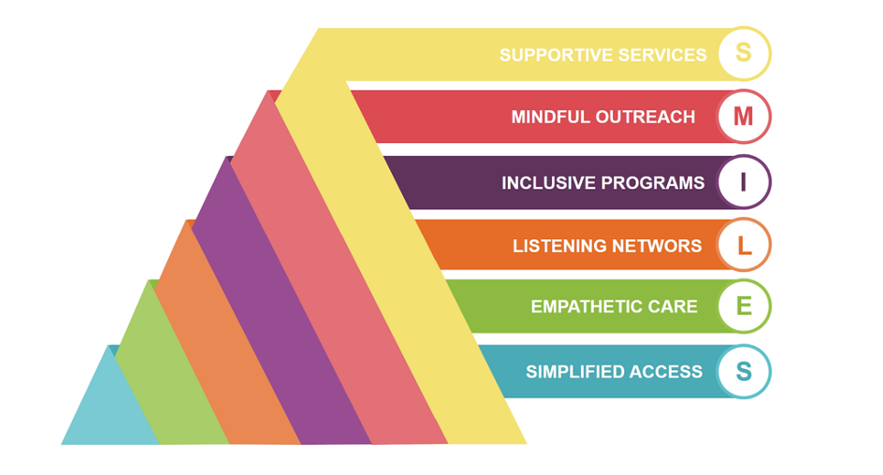
Supporting People in our Community with Parkinson’s Disease
Team: MOVE-PD
IMPACT-PD is a project dedicated to improving communication between people with Parkinson’s disease (PwP), their care partners, and healthcare professionals. Initially focusing on improving interactions between PwP and neurologists due to the limited frequency and brief duration of appointments, the project now aims to expand to include other healthcare providers such as physical therapists, occupational therapists, and speech-language pathologists. We hope to address the mismatch between symptom fluctuations and infrequent clinic visits through the development of quantitative metrics that allow the care team to better assess changes and adjust treatment for individual patients accordingly. Additionally, IMPACT-PD seeks to understand and optimize the benefits of various therapies available to PwP, including speech therapy and movement therapies like dance. The overarching goal of this project is to enhance the quality of life for PwP by learning from their experiences and facilitating better communication within their healthcare team.

Connecting Communities, Empowering Action (iConnect+)
Team: Community Catalysts
iConnect+ is a bridge between George Mason Scholars, community health organizations, and clients in Northern Virginia. We empower action by providing a user-friendly digital platform that connects individuals struggling with substance abuse to evidence-based, client-centered, culturally sensitive, and just-in-time care, resources, and support.
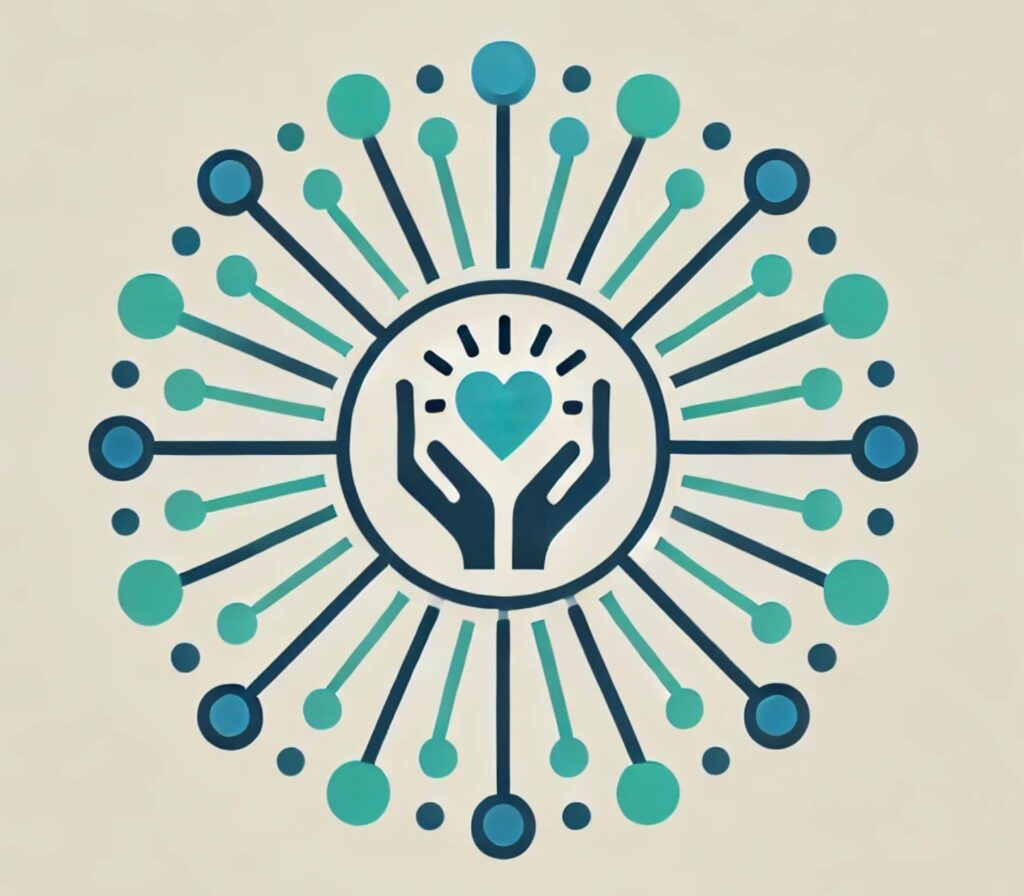
Connecting Transition-Age Young Adults with Physical Disabilities
Team: Health Influencer Network
The Health Influencers Network (HIN) team is working on the Transitioning-Age Young Adults with Disabilities project, which aims to improve access to resources for both young adults with disabilities and school-aged minoritized youth within underserved communities. The project’s broader goal is to enhance the overall well-being of these populations by developing a model that facilitates quicker and easier access to necessary services. HIN is also creating a network of health influencers who assist these communities, promoting collaboration and improving the quality of support provided. The team is composed of experts from Clinical Psychology, Neuroscience, and Information System Technology, ensuring a comprehensive approach that addresses both the health and technological needs of these underserved populations.

Improving Campus Navigation for Students with Mobility Impairments
Team: Technologies Assisting Communities
For students with mobility impairments, navigating physical and social spaces on campus is often challenging, usually impacting not only accessibility but also inclusion within higher education. Although the ADA has guidelines in place, many of those who are mobility-impaired struggle day-to-day. Navigation-assistive technologies can help mitigate these barriers and potentially provide solutions such as real-time navigational support and accessible path options. This team is working on improving the experience of navigating the George Mason University campus for students with mobility impairments. We are developing a mobile app and also engaging the community to help understand the challenges on our campus.

2023-2024
Improving the Health and Well-Being of Firefighters in our Community
Team: FIRE (First-responders, Innovation, Research, and Exploration)
Team FIRE’s research goal is to support and improve the mental and physical health of first responders in innovative, holistic ways that incorporate the community and promote transparency within departments to improve healthier outcomes. FIRE will leverage current best practices of peer mentorship, resources accessibility, and enhance family relationships with the hope of influencing firehouse culture, mindset, and overall health from the bottom-up with the support of leadership at the top. This approach will explore the impact of grassroots community engagement to make inclusive changes that lead to empowerment for first responders and their families.

Improving Mental Health Access for Underserved Communities
Team: SMILES
(Supportive services, Mindful outreach, Inclusive programs, listening networks, Empathetic Care, Simplified Access)
Team SMILES is focused on expanding work from Team BRIDGE (NRT 2022-2023 cohort) on addressing inequities and improving mental health access for minoritized underserved communities. We aim to further develop relationships with our community partner, the City of Alexandria’s Community Health Assessment and Improvement Plan (CHIP), to better serve the diverse communities in Alexandria. SMILES will pursue this goal to improve mental health access by conducting community needs assessments through focus groups and surveys in groups with unique language access needs; Arabic, Amharic, and Spanish-speaking communities. Ultimately, we will present this information back to the community through both evidence-based academic products and more importantly, community-accessible resources and presentations to inform local mental health access policy.

Preventing Domestic Violence in our Community through Partnership with Religious Institutions
Team: VIRTUE (Violence Intervention and Resolution through Unifying Efforts)
Team VIRTUE is focused on addressing barriers to domestic violence prevention and management in the broader Northern Virginia community through partnerships with community organizations. We aim to help foster the integration of support services for survivors of domestic violence in both secular and religious institutions. Ultimately, we hope to increase awareness for the impacts of domestic violence and the services available in our community in order to enhance care available for survivors of domestic violence.
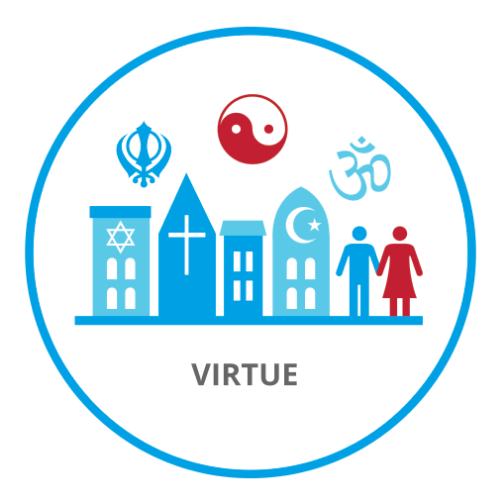
Supporting People in our Community with Parkinson’s Disease
Team: IMPACT-PD (Improving Messaging between Patients and their Care Team in Parkinson’s Disease)
IMPACT-PD is a project focusing on improving communication between people with Parkinson’s disease (PwP) , care partners, and health care professionals. Our current focus is on helping PwP and neurologists communicate better, due to the few yearly visits as well as the neurologists’ busy schedule. In the future, we would like to see this project incorporate other health care professionals, such as physical therapists, occupational therapist, speech therapists, registered nurses, etc. The overall goal of IMPACT-PD is to learn from those in the community who are affected by Parkinson’s disease and help improve their quality of life.

2022-2023
Improving Access to Mental Health Resources for our Community
Team: BRIDGE
A data visualization dashboard developed in partnership with the City of Alexandria’s Community Health Assessment and Improvement Plan (CHIP) to address inequities in mental health access.
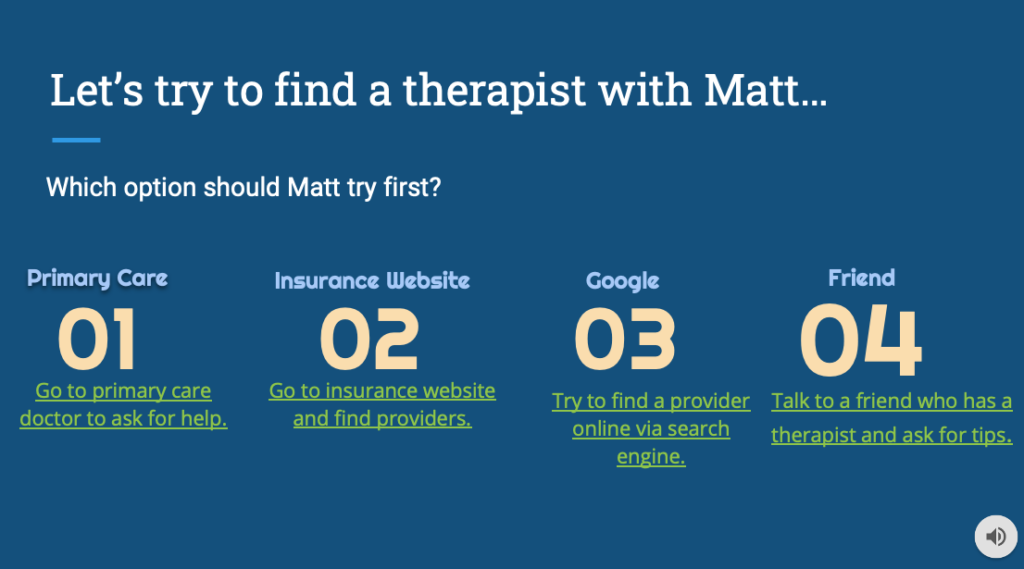
Improving Accessibility on Campus for Community Members with Mobility Impairments
Team: TAC (Technologies Assisting Communities)
Team TAC aims to create and improve a mobile application to aid in mobility around George Mason University campuses for individuals with mobility impairments. Our application introduces a reporting function that allows users to report an obstacle, classify it as a short-term (i.e., scooter blocking walkway) or long-term problem (i.e., broken elevator), and then send that report to the appropriate departments. We have also introduced a volunteer platform that the entire Mason community can participate in to bring awareness about the challenges faced by people with mobility impairments so we can foster a supportive and inclusive campus environment.
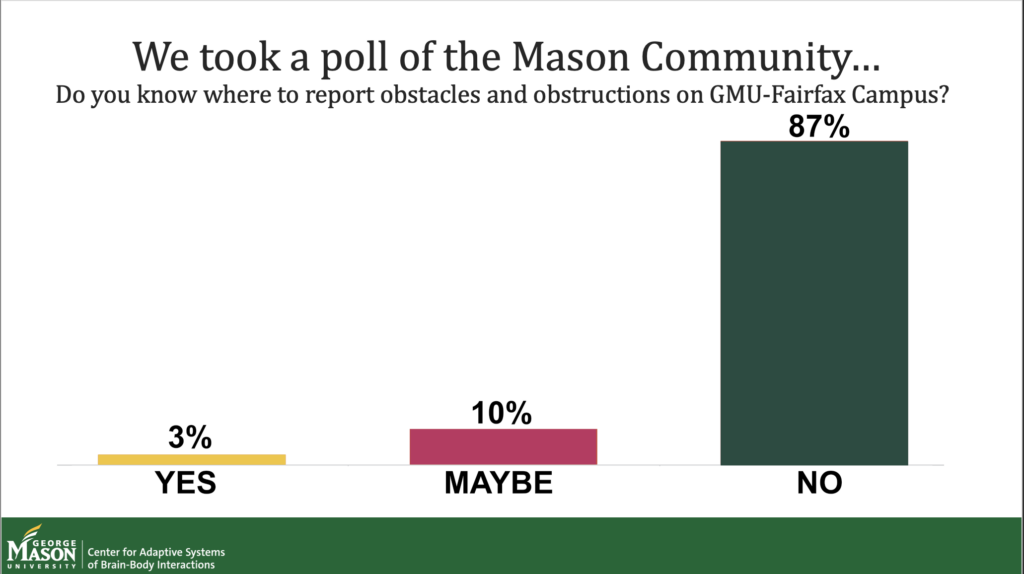
Supporting People in our Community with Parkinson’s Disease
Team: IMPACT-PD (Improving Messaging between Patients and their Care Team in Parkinson’s Disease)
The IMPACT-PD team aims to impact two areas of life for a person with Parkinson’s Disease:
- Improve continuing medical education for non-movement disorder specialists and non-neurologists; and
- Improve communications within the triad of Person with Parkinson’s, their care partner, and their medical team.

Supporting Individuals during Re-Entry after Incarceration to Reduce Substance Abuse
Team: PAVES (Promoting Alliances through Visualization of Expectations and Solutions)
This project aims to support members of our community during re-entry after incarceration and help prevent substance abuse. The goal was to provide a technological solution that would be a source of continuity and help individuals anticipate challenges and brainstorm solutions, as well as combat stigma and distrust in our community.
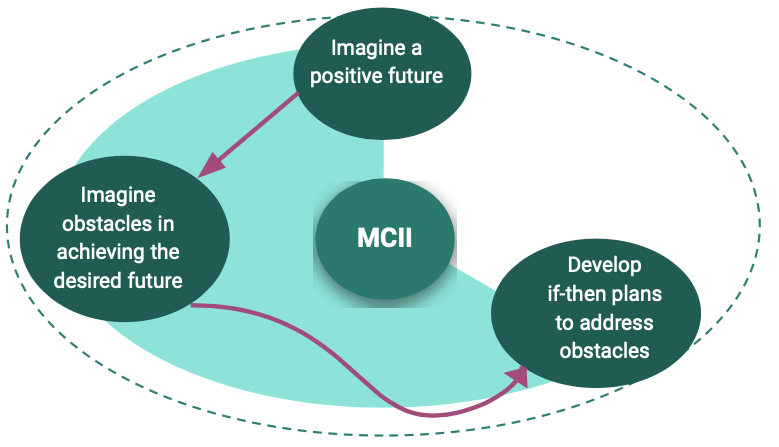
2021-2022
Guided Pathways for Individuals with Mobility Impairments in our Community
Team: Physical-Mental Solutions
This project seeks to understand navigation issues faced by individuals with mobility impairments on the George Mason University campus, and develop technological solutions to create a more accessible environment. Major problems explored are the lack of accessible routes and the lack of obstacle-reporting mechanisms. This team worked on developing autonomous rovers to detect obstacles and report the accessibility of proposed routes to street mapping databases and navigational smartphone apps.
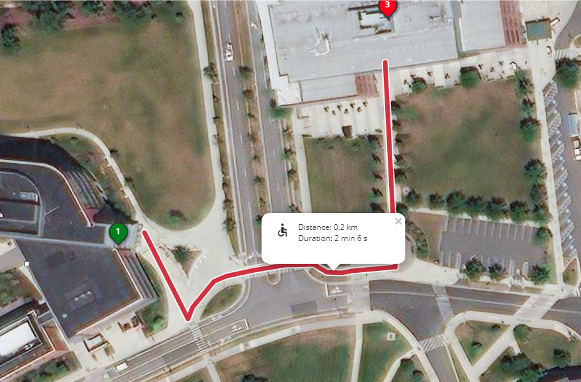
Exploration of Mental Health Resource Utilization of George Mason University Students
Team: The Social Justice League
This project seeks to understand the unmet mental health needs of graduate students at George Mason University. The short-term goals were to raise awareness of these needs through a digital story shared with the public, clinicians, and policymakers. The long-term goals were to advocate for policy solutions to meet these needs.
Helping Individuals in Recovery from Opioid Misuse find Community Support
Team: Good Troublers
A partnership with the Fairfax Falls Church Community Services Board and Chris Atwood Foundation to develop a technology-based resource for individuals in recovery from opioid misuse and their support network. Also supported by APDS and Insight on the Inside.
This smartphone-based app was called iConnect (Coordinating Opioid Network Needs with Expert Clinical Teams). Read an article about this project, and check out their website.
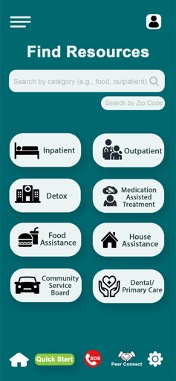
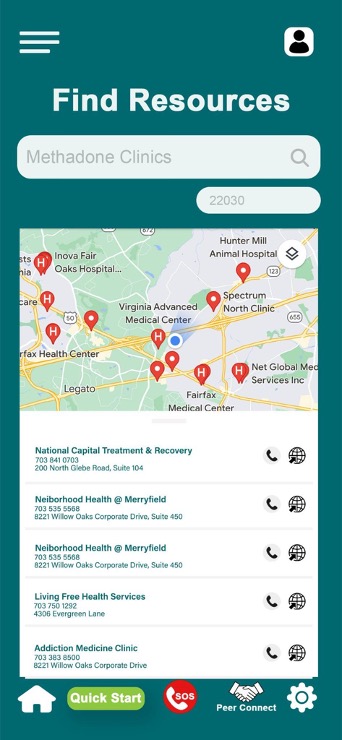
Connecting Incarcerated Individuals to Reentry Services in our Community
Team: The Justice League
A partnership with the District of Columbia Department of Corrections and Friends of Guest House to develop a whitelisted website that can be accessed by inmates in DC jails to help them prepare for reentry into the community.
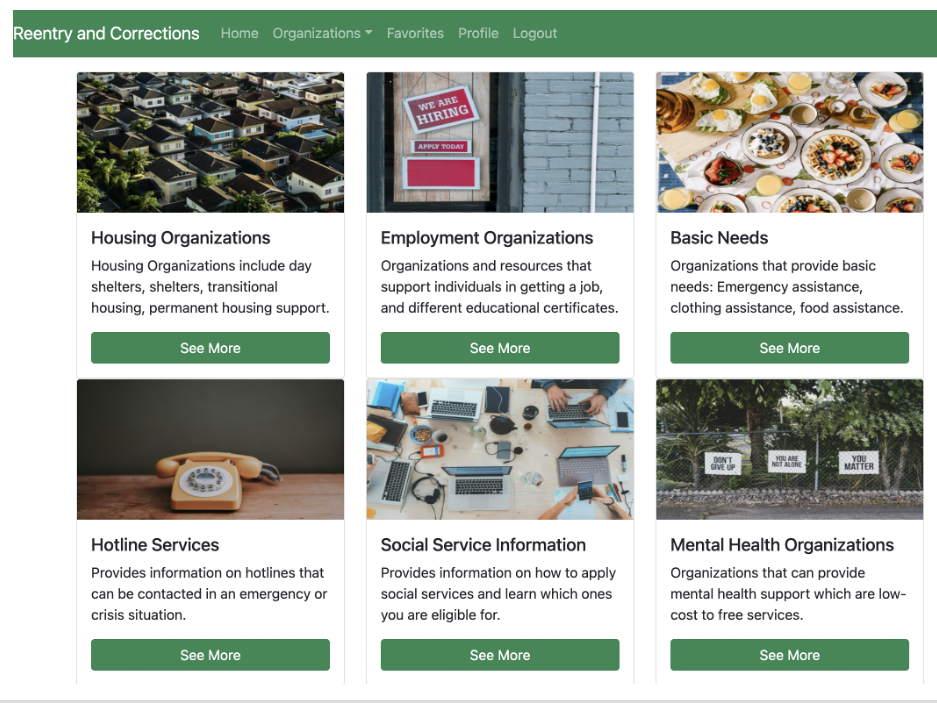
2020-2021
Supporting People in our Community with Parkinson’s Disease
Team: IMPACT-PD (Improving Messaging between Patients and their Care Team in Parkinson’s Disease)
This project aims to improve communication between patients, their families, caregivers, and their doctors. The goal is develop a technology platform that enables data-rich messaging between patients and their care-team, which may also serve as a blueprint for other patients with chronic illnesses. Performed in partnership with the Michael J. Fox Foundation, the PD Avengers, Vibrent Health, and INOVA hospitals.
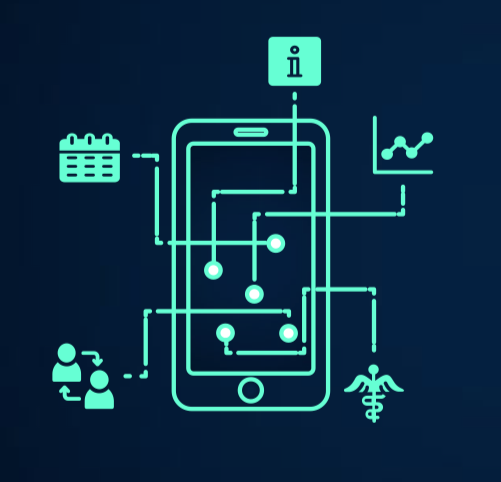
Reducing the Prevalence of Opioid Misuse in our Community
Team: RISE OUT (Risks and Socio-Ecological factors associated with Opioid Use Treatment)
This project seeks to reduce opioid misuse in northern Virginia by investigating the environmental factors and patterns of overdose in our community, as well as investigating the interpersonal treatment factors that influence misuse.
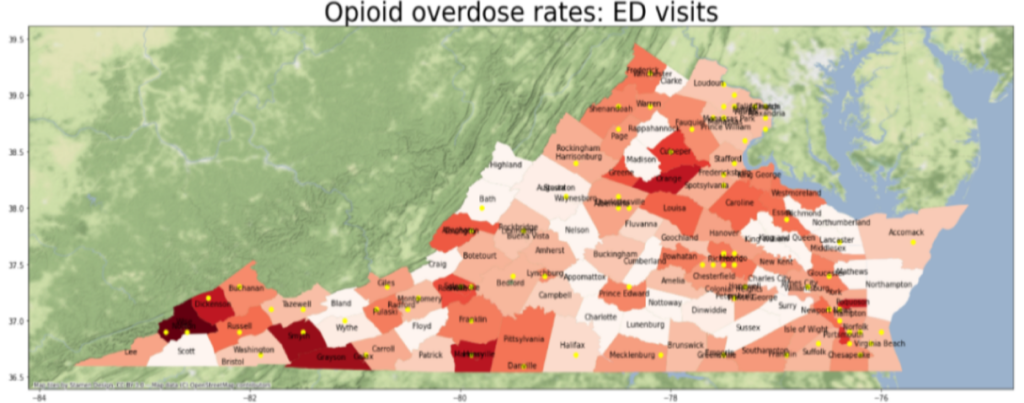
Supporting Students with Disabilities in our Community during the COVID-19 Pandemic
The COVID-19 pandemic forced most schools in the United States to an online learning format. This study aims to investigate how COVID-19 has impacted students with disabilities and their families. Performed in partnership with Fairfax County Special Education PTA, the Family-Run Executive Director Leadership Association (FREDLA), and the Total Family Care Coalition (TFCC).
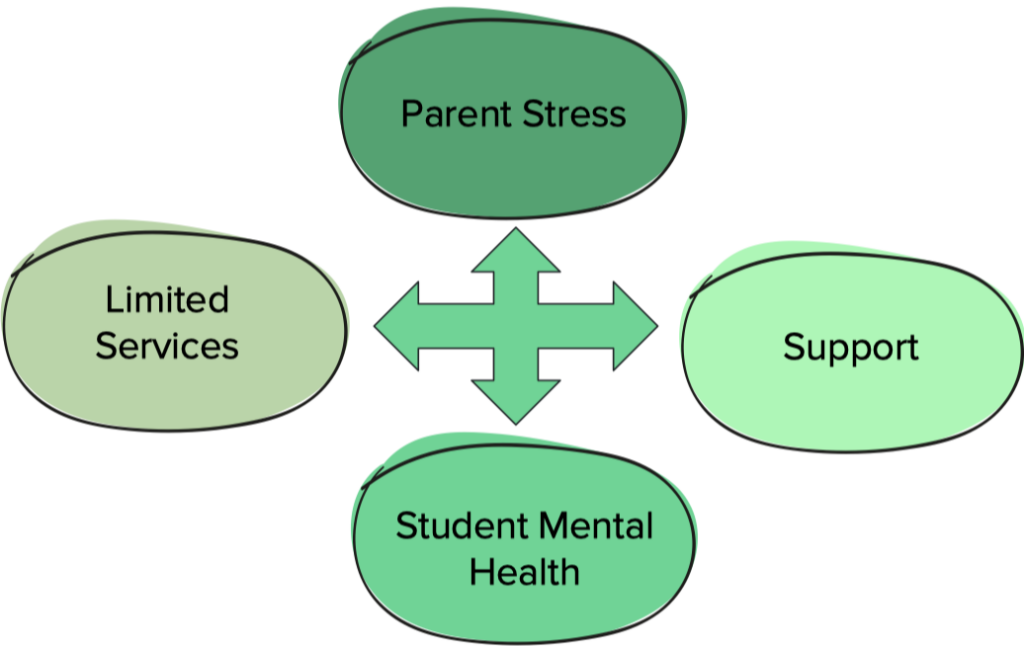
Disclaimer: Any opinions, findings, and conclusions or recommendations expressed in this material are those of the author(s) and do not necessarily reflect the views of the National Science Foundation.

